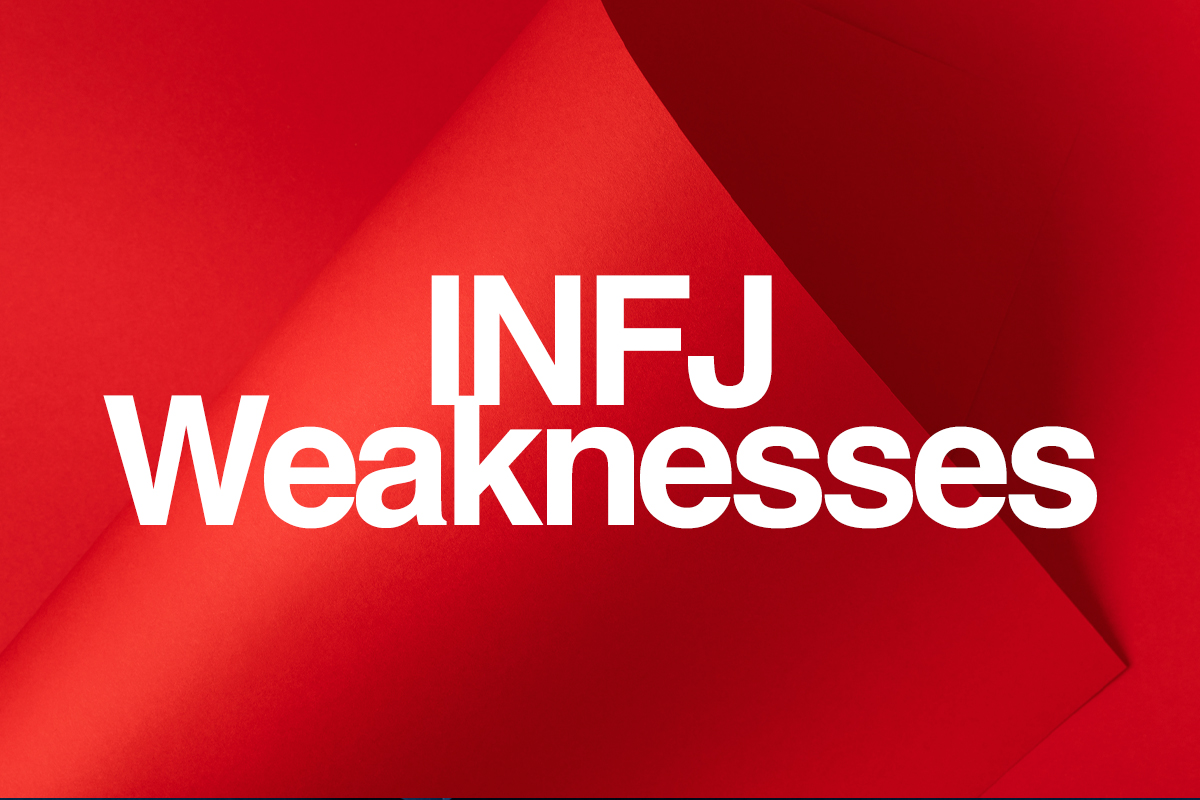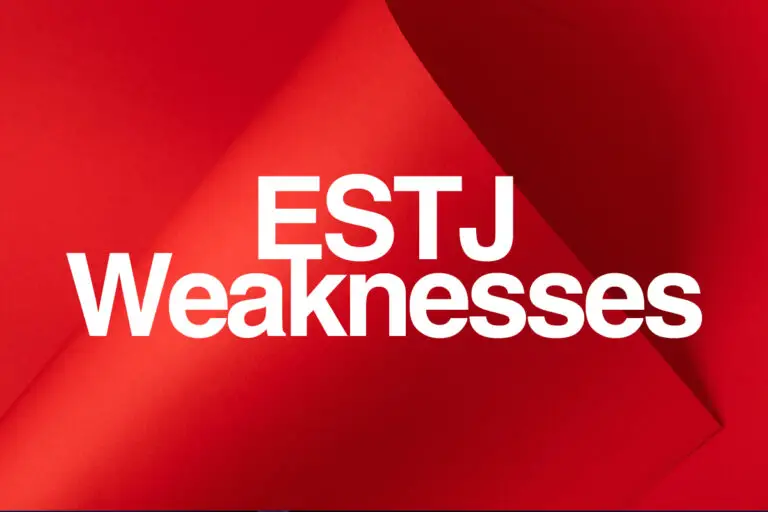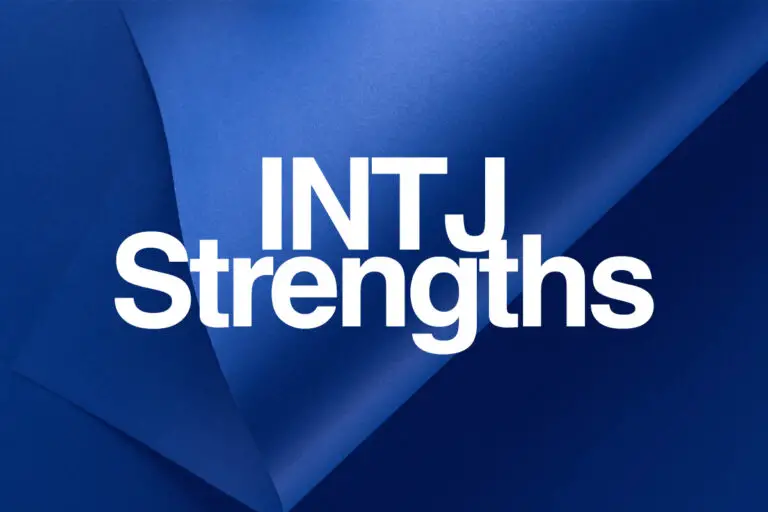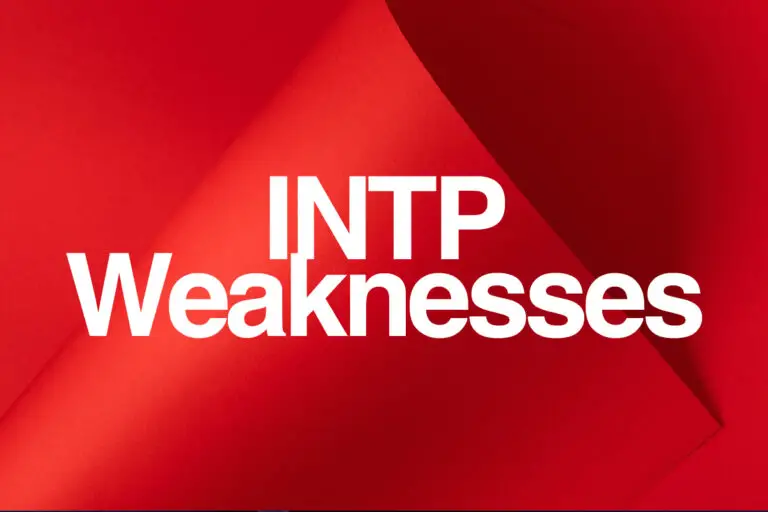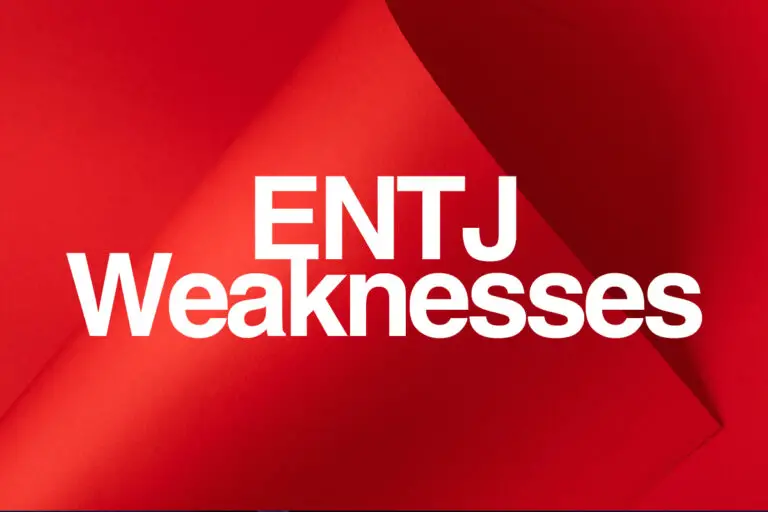7 Major INFJ Weaknesses & How to Manage Them (2024)
Knowing your weaknesses is as important as owning your personal strengths. First, it helps you make the right choices in life, pushing you away from unfulfilling and problematic situations.
If you are not aware of your negative traits, you are doomed to repeat your past mistakes, ending up in circumstances that go against your core values and life purposes.
Once you fully embrace your personal weaknesses, you’ll be able to deal with them accordingly, thus moving forward in your self-development journey.
The most prevalent INFJ weaknesses are their inability to take criticism and their overly withdrawn nature.
INFJ Weaknesses
1. Thin-skinned
One important INFJ weakness is their inability to take criticism. These individuals are overly sensitive and take everything to heart, especially constructive remarks. They embrace feedback as long as it doesn’t challenge their personal outlook on life.
This INFJ flaw stems from the feeling (F) trait of their personality. Their emotions prevail over their objective reasoning, making them feel threatened when others criticize issues that are dear to their hearts.
This INFJ negative trait appears mostly in their professional lives. If their boss suggests that they could improve their work in a certain area, INFJs become defensive and upset, spending hours or days ruminating on the criticism and feeling hurt and anxious.
How to Deal With it
- INFJs can manage this weakness by practicing mindfulness to become more aware of their reactions to criticism and give them a sense of perspective rather than getting caught up in negative emotions.
- These personalities can avoid this negative trait by seeking out constructive feedback from people they trust to develop a thicker skin.
- INFJ individuals can minimize this personality weakness by reframing their thinking and seeing criticism as an opportunity to learn and grow.
2. Overly Withdrawn
Another weakness for INFJ is their reticence to open up in front of others. These individuals are honest and genuine but also very reserved, especially when it comes to their vulnerabilities.
Deep down, they don’t want to bother others with their personal struggles, which pushes them away from their relationships.
This INFJ problem comes from the introvert (I) trait of their personalities. INFJs feel overwhelmed when exposing their inner world to others, which is why they recharge their energies by withdrawing in their privacy.
This INFJ weakness in relationships brings them many problems. Even in one-on-one conversations, these individuals are hesitant to share their thoughts and feelings, and others get the sense that they are holding back.
How to Deal With it
- INFJs can manage this weakness by practicing self-disclosure. This involves gradually sharing more personal information with others, starting with small details and working their way up to more significant topics.
- These personalities can avoid this negative trait by seeking out supportive relationships with people they trust and feel comfortable with.
- INFJ individuals can minimize this personality weakness by seeking therapy to explore their thoughts and feelings and work on developing healthy communication skills.
3. Overly meticulous
Another of the INFJ problems is how they rigidly strive for perfection in everything they do. They are idealistic, which leads them to excel in their professional paths. However, it doesn’t leave room for mistakes.
An INFJ under stress becomes even more rigid and perfectionist, which delays all their projects. This negative quality comes from the judging (J) side of their character. They stick to a structured path and don’t allow themselves to divert from it.
This INFJ weakness at work brings many problems. They spend hours reviewing and revising their documents and are never satisfied with anything less than perfect. INFJs are also very critical of the work of others and are quick to point out even minor mistakes. As a result, they are often stressed and anxious about their work, and their colleagues may find them hard to relate with.
How to Deal With it
- INFJs can manage this weakness by setting realistic goals for themselves and being able to accept that mistakes are part of the growing process.
- These personalities can avoid this negative trait by practicing self-compassion when they fall short of their own expectations.
- INFJ individuals can minimize this personality weakness by identifying the underlying cause of their perfectionism and seeking help to develop coping strategies.
4. Avoidant everyday routines
One intriguing INFJ personality weakness is their unwillingness to deal with the practical details of everyday reality. These individuals are so focused on the big picture that they fail to build manageable steps to bring their dreams to fruition.
This negative INFJ characteristic stems from the intuitive (I) side of their character. These personalities pay more attention to their extraordinary ideas rather than what is present, current, and real.
This negative quality makes them constantly try new things, from extreme sports to exotic travel destinations. However, they fail to sustain long-term projects or relationships, creating a sense of uncertainty in their lives.
How to Deal With it
- INFJs can manage this weakness by reflecting on their values and priorities. Are they seeking novelty and excitement because it aligns with their values, or are they avoiding the ordinary because they feel bored or unfulfilled in their current life?
- These personalities can avoid this negative trait by seeking out new experiences within familiar activities.
- INFJ individuals can minimize this personality weakness by practicing gratitude. Taking time to focus on the things they are grateful for, whether big or small, can help them to appreciate the present moment and find joy in the ordinary.
5. Workaholic
Another personality weakness that causes conflict in the lives of these personalities is their workaholic tendencies. They are perfectionists and tend to bottle up their feelings, making them over exert themselves more than necessary.
This negative personality trait stems from the introverted (I) and judging (J) sides of their character. They don’t like to delegate their tasks and push themselves to finish everything they start, even if it means jeopardizing their mental health.
Despite their hard work, INFJs often feel overwhelmed and exhausted, and they frequently complain of feeling burnt out. They frequently work late into the night and on weekends and have little time for leisure or self-care.
How to Deal With it
- INFJs can manage this weakness by practicing self-care.
- These personalities can avoid this negative trait by setting healthy boundaries at work.
- INFJ individuals can minimize this personality weakness by finding ways to relax and unwind, such as through exercise, meditation, or hobbies.
6. Struggles with unexpected changes
Another potential problem area in INFJs lives is their inability to cope with last-minute changes. They freeze when things go off script, becoming rigid and unable to devise creative solutions to face their situations.
This problematic characteristic comes from the judging (J) side of their character. INFJs prefer things to be as orderly and predictable as possible and feel unsettled with spontaneous outcomes.
If a meeting is rescheduled or a project deadline is moved up, INFJ personalities become stressed and overwhelmed and may struggle to adapt to the new schedule.
How to Deal With it
- An effective way to overcome this weakness is to practice flexibility and try to be open to new experiences and approaches.
- These personalities can avoid this negative trait by developing a plan B just in case something unexpected happens.
- INFJ individuals can minimize this personality weakness by practicing stress-management techniques.
7. Conflict-averse
INFJs lack of confidence to express their feelings make them conflict-averse. Conflicts can be challenging and difficult to deal with, but they can also present opportunities for growth and development.
This deficiency stems from the introverted (I) side of their personality. They don’t like being the center of attention and prefer to go along with others rather than antagonize them.
When conflicts arise in the workplace, INFJs tend to avoid getting involved and will often go out of their way to avoid interacting with the parties involved. As a result, they have difficulty advocating for their own needs or speaking up when feeling upset.
How to Deal With it
- INFJs can manage this weakness by practicing assertiveness.
- These personalities can avoid this negative trait by identifying their values and clarifying what’s important to them. This can help them to be more comfortable advocating for themselves.
- INFJ individuals can minimize this personality weakness by listening attentively to others and trying to understand their perspectives even if they disagree with them. Active listening can help them find common ground when conflicts arise.
FAQ
What is INFJs weakest function?
INFJs weakest function is their sensitivity to external criticism.
What do INFJs struggle with?
INFJs struggle with their perfectionist tendencies that delay all their tasks and projects.
What do INFJs fear the most?
What INFJs fear the most is talking about their vulnerabilities.
What annoys the INFJs the most?
What annoys the INFJs the most is unexpected changes.
What is the dark side of INFJs?
The dark side of INFJs is their avoidance of conflict and reluctance to embrace constructive criticism.
What annoys people about INFJs?
What annoys people about INFJs is their overly sensitive character that makes them defensive to external feedback.
What are INFJs misunderstood as?
INFJs are misunderstood as easygoing and carefree, but they actually struggle to express their feelings to other people.
What stresses out INFJs the most?
What stresses out INFJs the most is last-minute changes.
How to improve INFJ weaknesses?
INFJs can improve their weaknesses by being more flexible in their everyday experiences and practicing self-compassion.

